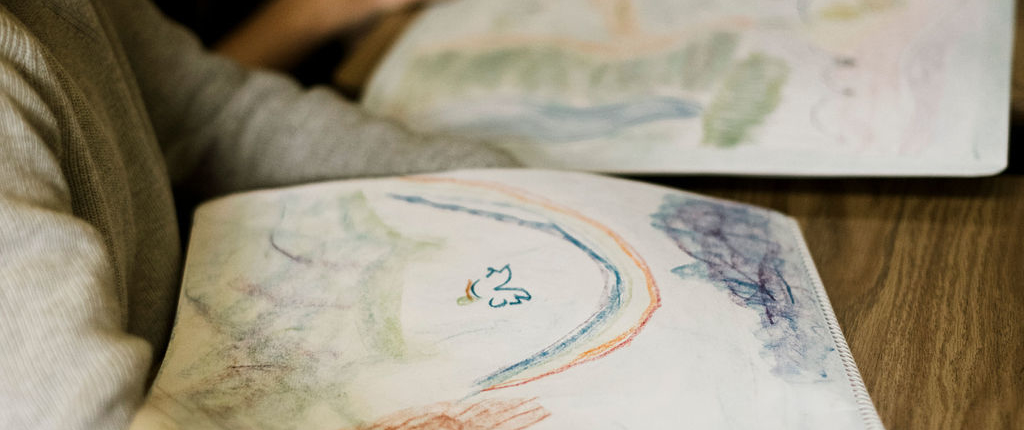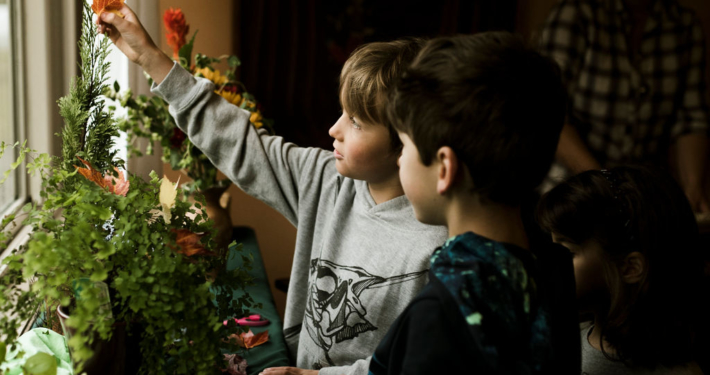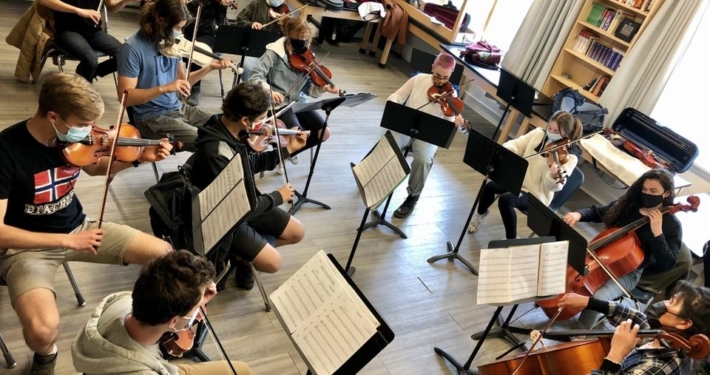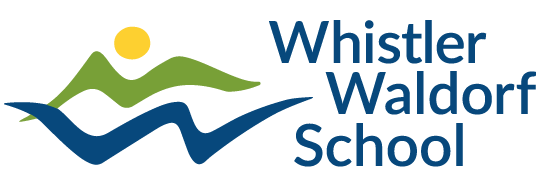A Balanced, Progressive Approach
PLAYSCHOOL AND KINDERGARTEN
The Whistler Waldorf School has a strong Early Years program, which includes licensed, Group Childcare Programs (ages 30 months – School age) – Little Cedars @ Spruce Grove and Early Years Centre @ Spring Creek.
We also offer Kindergarten as part of the Early Years Programs – Briar Rose @ Spruce Grove. They share the same characteristics that are unique to a developmentally appropriate Waldorf approach to early childhood education.
GRADE (ELEMENTARY) SCHOOL
During the elementary school years (Grades 1-4), the educator’s task is to transform all that the child needs to know about the world into the language of the imagination, a language that is as accurate and as responsible to reality as intellectual analysis is in the adult. The wealth of an earlier, less intellectual age – folk tales, legends and mythologies, which speak truth in parables and pictures – becomes the teacher’s inexhaustible treasure house.
Middle School Specialization – In Waldorf, the middle school years (Grades 5-7), include real world activities and projects through travel, guest teachers and speakers, and a variety of outdoor experiences to provide new challenges, and fully support the students as they begin to develop their critical thinking capacities.
HIGH SCHOOL
In High School (Grades 8-12), by fully engaging, challenging and inspiring students throughout their Junior and Senior high school experience, the Waldorf high school curriculum aims to provide excellence in academics as well as a platform for students to fully develop their sense of self with a clear purpose for the future. The students are fully supported as they begin to develop their critical thinking capacities.
We also offer opportunities for students to reach out within the community for career exploration, community engagement and Co-op service experiences. This provides them with even more ways to develop their skills and explore what they love to do as a future, engaged citizen of not only their local community, but also the world.
GRADUATION AND CERTIFICATION
Upon successful completion of the Whistler Waldorf High School program, students will be awarded a Waldorf High School Certificate and Dogwood Diploma (BC School Completion Certificate and entry requirement for post-secondary institutions and employers).
Education Tailored for All Learning Styles!
Independent Schools in BC
On the surface, BC’s independent schools don’t appear to differ to public schools in that they employ B.C.-certified teachers, have educational programs consistent with ministerial orders, provide a program that meets the learning outcomes of the B.C. curriculum, meet various administrative requirements, maintain adequate educational facilities, and comply with municipal and regional district codes. WWS is a member of the following education and development-based associations:
FISA BC – The Federation of Independent School Associations in British Columbia is an umbrella organization of independent school associations in BC.
AWSNA – The Association of Waldorf Schools of North America (AWSNA) is a nonprofit membership organization of independent Waldorf schools and institutes in Canada, the United States, and Mexico.
WECAN – WECAN is also a nonprofit membership organization that works very closely in collaboration with its sister organization, the Association of Waldorf Schools of North America (AWSNA). WECAN specializes in early childhood programs, kindergartens, child care centers, home programs, and teacher training centers committed to the ideals and practices of Waldorf early childhood education.
What makes Waldorf schools unique?
On the surface, Whistler Waldorf School doesn’t appear much differently than a public school. Our day to day grade school and high school operations are similar to BC public schools with an 8:30 – 3:05 daily schedule, running from September to June, five days per week. Our Kindergarten program operates five days per week as mandated by the BC Provincial Government, and we also offer playschool programs for two to five days per week at two separate locations in Whistler.
The physical space at our school however may offer a unique first impression, with walls painted in an artistic way and an essence of natural simplicity, calmness and beauty in the school, which provides a sanctuary for the students to learn and be creative.
You may also notice the feeling of community and the supportive environment for all students, staff and families. It is a special feeling of appreciation and respect for all connected to the school.
Following are a few key components that distinguish Waldorf education from other approaches:
Developmentally Appropriate Curriculum
The curriculum was designed, based on a deep understanding of child development which delivers age-appropriate subject matter and activities throughout the child’s education. Rudolph Steiner, the founder of Waldorf education, proposes a philosophy of child development that suggests a human is a threefold being of spirit, soul, and body whose capacities unfold in three developmental stages on the path to adulthood: early childhood, middle childhood, and adolescence. The Waldorf curriculum is broad and comprehensive and designed to bring age appropriate subjects that support each of these developmental phases.
Multi-Disciplinary Approach
The teacher recognizes the multi-faceted way that each child learns, and strives to meet the needs of all types of learners, kinesthetic, visual and auditory. Through experiential learning, the teacher recognizes that in order for a child to truly “know” something they need to experience it physically, emotionally and intellectually.
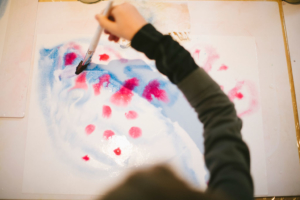 The curriculum is enlivened and strengthened by a liberal arts program incorporating fine arts (drawing, painting and sculpture) and practical arts (knitting, sewing and woodworking), music (voice, recorder and violin) and movement into daily practice. Waldorf education is richly steeped in the humanities, foreign languages (French from grade 1), sciences, and the arts, and strives to create a genuine love for learning.
The curriculum is enlivened and strengthened by a liberal arts program incorporating fine arts (drawing, painting and sculpture) and practical arts (knitting, sewing and woodworking), music (voice, recorder and violin) and movement into daily practice. Waldorf education is richly steeped in the humanities, foreign languages (French from grade 1), sciences, and the arts, and strives to create a genuine love for learning.
At the Whistler Waldorf School, students learn from an early age to engage in their own learning process. The imaginative play and grace of the early years evolves into an experience of meeting the beauty and complexity of the world with sensitivity and hope. This foundation leads to a rich academic experience that supports young men and women in realizing their full potential as students, as people, as members of the global community.
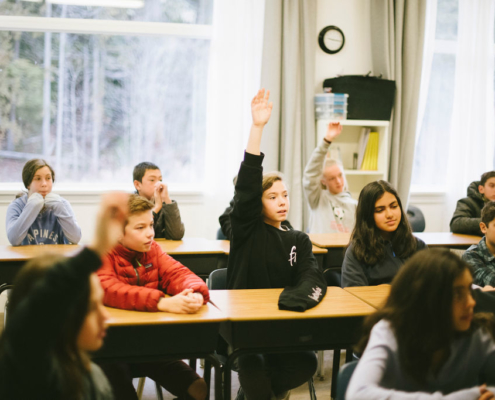
The school offer a thoroughly balanced curriculum to meet the needs of children facing a fast paced, changing world. Students are engaged in intellectual, artistic, and experiential learning in all subject areas. All this guided by a model of child development that emphasizes the right blend at the right time.
Teachers’ Extraordinary Commitment
The role and work of the teachers in a Waldorf school also represents a unique aspect to Waldorf education. The faculty works together to establish curriculum decisions, create teaching schedules, and discuss all issues relating to the classroom and the children. Waldorf teachers are deeply committed to their students and the school.
Waldorf Myths, Facts & Reflections
There are many misconceptions and various perceptions about what Waldorf education looks like, Some believe a Waldorf education is similar to a denominational private school curriculum, but we are non-sectarian and non-denominational as noted in the basic questions below.
Where did Waldorf education originate?
Waldorf education has its roots in the research of the Austrian scientist and thinker Rudolf Steiner (1861-1925). According to Steiner’s philosophy, a human is a threefold being of spirit, soul, and body whose capacities unfold in three developmental stages on the path to adulthood: early childhood, middle childhood, and adolescence. The Waldorf curriculum is broad and comprehensive and designed to bring age appropriate subjects that support each of these developmental phases.
FAQ about Waldorf education from Waldorfeducation.org
Is Waldorf similar to Montessori?
These two educational approaches began with a similar goal: to design a curriculum that was developmentally appropriate to the child and that addressed the child’s need to learn in a tactile as well as an intellectual way. The philosophies are otherwise very different.
Are Waldorf schools religious?
While no formal religious instruction takes place in the Waldorf school curriculum, parents should be aware that reverence and an appreciation and respect for the natural environment are present in the day-to-day activities of the school. We live in a Christian-Judeo influenced society and some of the celebrations and festivals of the year reflect that. Families who celebrate other religious festivities are encouraged to speak to their teacher about ways that they can share these celebrations with the class. We seek to educate our students in love and immerse them in the world of great literature, art and science. We wish to send them forth into the world in freedom to explore and discover their own beliefs and destinies.
Adopted Declaration of British Columbia Waldorf Schools for Diversity and Inclusiveness (326K PDF)

